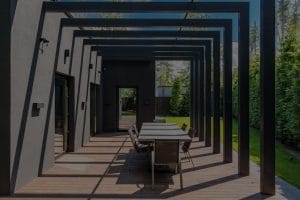Unlocking Harmony: The Power of Feng Shui in Your Living Space
Feng Shui is an ancient practice that harmonizes energy in our surroundings, promoting balance and tranquility. Discover how it can transform modern interior design and enhance your space.
Understanding Feng Shui: A Brief Overview
Feng Shui, rooted in ancient Chinese philosophy, focuses on the arrangement of space to optimize the flow of energy, or “Chi.” This practice emphasizes the connection between our environment and our well-being. By aligning our interiors with natural elements, we can create spaces that foster positivity and prosperity. Understanding the principles of Feng Shui is essential for anyone looking to enhance their living space.
Creating Balance: The Five Elements
Central to Feng Shui are the five elements: wood, fire, earth, metal, and water. Each element represents different energies and emotions. For instance, wood symbolizes growth and vitality, while water embodies calm and abundance. Integrating these elements into your interior design can establish a balanced atmosphere. Consider using wooden furniture, incorporating water features, or adding earthy tones to achieve harmony.
Color Psychology: Enhancing Your Mood
Colors play a crucial role in Feng Shui and can significantly impact our emotions. Each color corresponds to specific energies; for example, blue promotes serenity, while red ignites passion. When designing your space, choose colors that resonate with your intentions. A well-thought-out color palette can uplift your mood and create an inviting environment.
Furniture Placement: Flow of Energy
The arrangement of furniture is vital in Feng Shui. Proper placement encourages the free flow of Chi, preventing stagnation. Avoid blocking pathways and ensure that furniture is positioned to promote conversation and connection. For instance, placing sofas facing each other fosters interaction and warmth. Thoughtful furniture arrangement can enhance the overall energy of your space.
Natural Light and Air: Vital Energy Sources
Natural light and fresh air are essential components of a harmonious space. Maximizing these elements can invigorate your environment and enhance your well-being. Use sheer curtains to allow sunlight to filter in, and open windows regularly to circulate fresh air. Incorporating plants can also purify the air, adding life and vitality to your home.
Incorporating Feng Shui Art and Decor
Art and decor can significantly influence the energy in your home. Choose pieces that evoke positive emotions and reflect your personality. Feng Shui recommends artwork depicting nature, which can enhance tranquility. Additionally, using mirrors strategically can amplify light and energy, creating a sense of spaciousness. Thoughtfully selected decor can reinforce your intentions and elevate your space.
Decluttering: Creating Space for Positive Energy
A cluttered environment can hinder the flow of Chi and create feelings of overwhelm. Regularly decluttering your space allows for new energy to enter. Start by assessing each room and removing items that no longer serve you. This process not only enhances your space but also promotes mental clarity and focus. A clean, organized environment is essential for fostering positivity.
Conclusion: Embracing Feng Shui in Everyday Life
Incorporating Feng Shui principles into modern interior design can significantly enhance your living space. By understanding the elements, colors, and arrangement of your environment, you can create a harmonious atmosphere that nurtures your well-being. Embrace these timeless practices and transform your home into a sanctuary of energy and balance. Remember, the goal of Feng Shui is not just aesthetics but fostering a space that supports your life journey.










